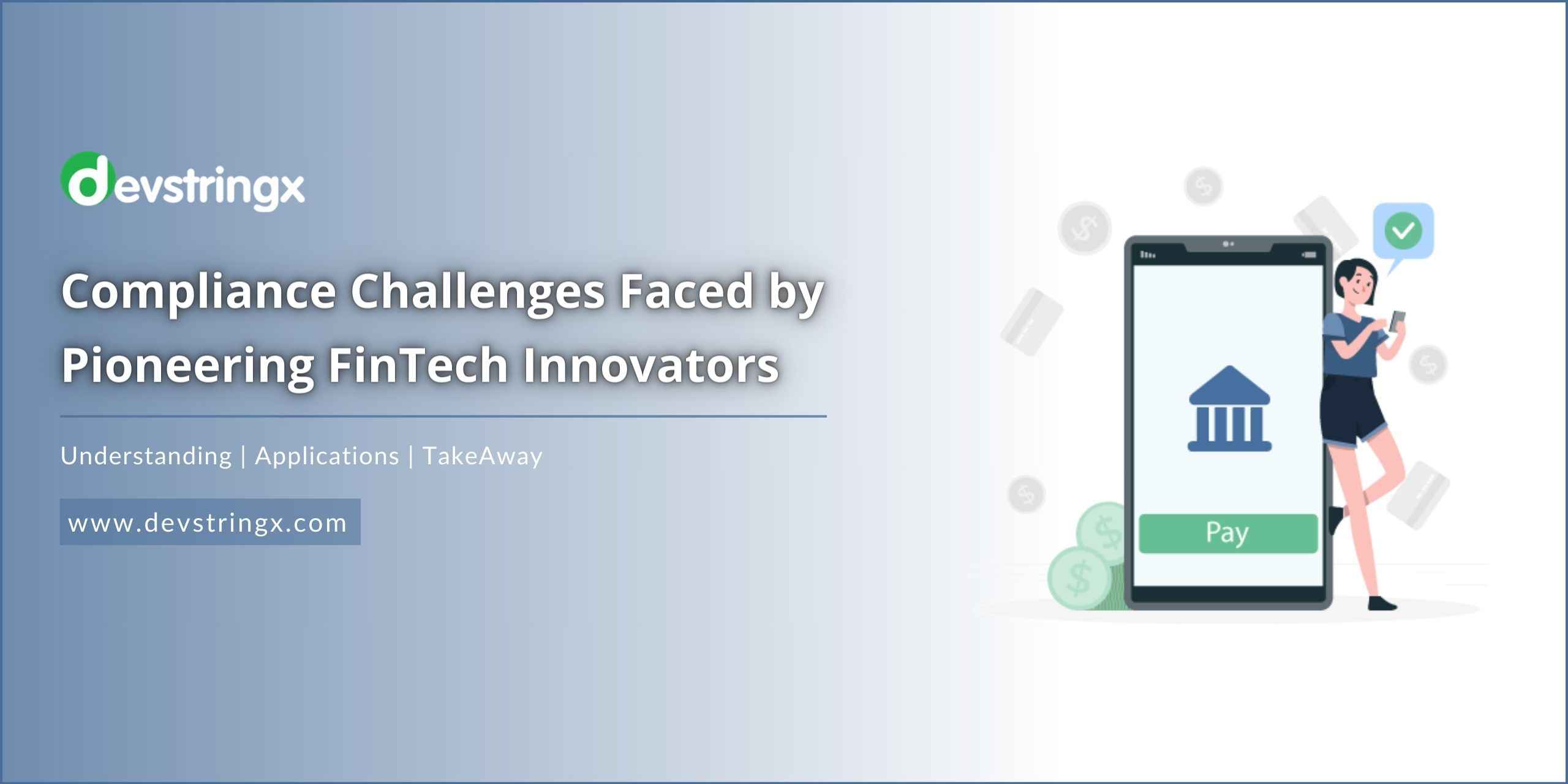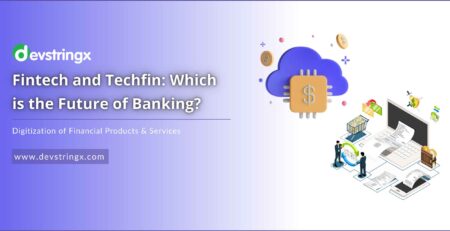Understanding the Compliance Challenges Faced by Pioneering FinTech Innovators – DS
Compliance Challenges Faced by Pioneering FinTech Innovators
The FinTech industry has transformed rapidly from an emerging sector to a revolutionary force in just a decade. These pioneers are actively using technology to redefine banking, transactions, and investments, reshaping the financial rules. However, as they navigate this new terrain, they confront regulatory challenges. To protect all stakeholders, they must thoroughly understand and address these challenges.
Additionally, as consumers and businesses increasingly rely on FinTech solutions, the importance of maintaining stability and safety grows. Regulators need to maintain a careful balance by promoting innovation and ensuring security. This evolving relationship between innovation and regulation demands proactive engagement and open communication to address and anticipate challenges.
Furthermore, as finance becomes more global, addressing challenges isn’t just a domestic endeavour, making international cooperation essential. The partnership between FinTech and regulatory entities will undoubtedly define the financial future as we delve deeper into the digital era.
1) Navigating a Dynamic Regulatory Landscape
Every established industry has its dedicated set of regulations designed to safeguard consumers and maintain stability, within the ecosystem. However in the evolving world of FinTech, where innovation often outpaces legislation, regulatory bodies frequently struggle to keep up. This presents multiple challenges for startups.
a) Staying Informed
With regulations constantly changing, FinTech firms must remain vigilant and stay updated on any shifts to ensure compliance.
b) Resource Management
Frequent regulatory changes may require quick reallocation of both human and financial resources potentially disrupting business strategies.
c) Product Evolution
The unpredictable regulatory landscape means that products and services might need continuous revisions or even complete overhauls to meet emerging compliance standards.
2) Global Ambitions and the Complexities of Cross-border Compliance
Many FinTech companies have a wide-spectrum vision, aiming to expand beyond local or national boundaries. Their goal is to create payment platforms that can be relevant worldwide. However, as they venture into diverse territories, they face the complexities of navigating international regulations.
a) Diverse AML and KYC Expectations
One significant challenge that arises when operating in countries is the need to adhere to anti-money laundering (AML) and customer identification norms. Each territory has its set of expectations, in these areas.
b) Taxation
Another hurdle is dealing with the tax structures found in countries. As FinTech enterprises expand they must navigate these tax systems.
c) Handling Data Across Frontiers
Managing and protecting data becomes especially challenging when faced with varying data protection laws such as the European General Data Protection Regulation (GDPR) or California Consumer Privacy Act (CCPA).
3) The Data Conundrum: Leveraging Insights While Ensuring Privacy
In this era of digital transformation, data holds significant value for FinTech firms. They utilize this data to provide AI-driven insights to offer personalized solutions and predict market trends. However, it is crucial to maintain a balance between leveraging data for these purposes while ensuring privacy measures.
a) Robust Security Measures
To achieve this balance, strong security measures are necessary, at every stage of handling the data—whether it’s being processed, stored, or transmitted—to safeguard against breaches.
b) Ensuring Transparency
Furthermore, transparency plays a vital role in keeping users informed about how their data is being utilized and for what specific purposes.
c) Managing User Consent
With pseudonymity in technology, traditional processes for Anti Money Laundering (AML) and Know Your Customer (KYC) face difficulties when it comes to tracing transactions back to individuals. The global nature of technology brings advantages, but, also complicates regulatory compliance by disregarding borders.
4) Merging Innovation & Tradition; Integrating Conventional Financial Systems
While FinTech often strives to disrupt, it also aims to enhance and seamlessly integrate with the existing infrastructure. However, this union of the old and the new is not without its challenges.
a) Striking a Balance B/W Interoperability and Security
The integration process should be smooth, ensuring connectivity while never compromising on the security of either system.
b) Navigating Legacy Regulatory Hurdles
Traditional financial systems operate within established regulations that may not immediately embrace innovations from the world.
c) Addressing Resistance
Not all traditional institutions readily embrace change. Collaborating with entities deeply rooted in their ways can prove to be a cumbersome task.
5) Pioneering through New Technogies; Navigating the Regulatory Unknowns of Emerging Technologies
Technological advancements like blockchain and cryptocurrencies are uncharted territories by their very nature. Their novelty often leads to a lack of clear regulatory guidelines.
a) The Dilemma of Cryptocurrency Classification
The precise categorization of cryptocurrencies remains a subject of debate. Are they considered assets, currencies, commodities, or a new category altogether?
b) Balancing Anonymity and Regulation
The inherent pseudonymity provided by technology poses challenges for Anti Money Laundering (AML) and Your Customer (KYC) processes in tracing transactions back to individuals.
c) Globalized Operations
Decentralized technologies inherently transcend borders, which presents both advantages and complications, when it comes to regulatory compliance.
6) Establishing Trust by Safeguarding Consumers Interests
At the core of any operation lies the consumer. As FinTech introduces platforms and systems, it becomes crucial to ensure that consumers are not only protected but also fully comprehend these innovations.
a) Transparent Communication of Risks
It is essential to communicate all potential risks associated with a service or platform to users.
b) Support Systems with Empathy
A strong support infrastructure guarantees prompt and effective addressing of user concerns or grievances.
c) User Education
FinTech firms should bear the responsibility of educating their users about the complexities of technology and its possible implications.
7) Striking a Balance; Prioritizing Compliance amidst Rapid Growth
Startups, in their quest to establish a market presence and competitive advantage, frequently place growth and scalability at the forefront of their strategies. Yet, in FinTech, this hunger for rapid expansion can occasionally blindside them to the intricate and ever-evolving landscape of compliance requirements.
a) Scheduled Compliance Reviews
As companies expand, conducting compliance audits becomes indispensable for preventing oversights or breaches.
b) Embedding Compliance Culture
Every person within the company, from employees to the leadership team, needs to understand and prioritize compliance.
c) Utilizing Regulatory Technology (RegTech)
The use of Regulatory Technology (RegTech) can be a game changer by offering solutions that cater specifically to compliance needs, allowing firms to automate and efficiently manage regulatory requirements.
Shaping the Path Ahead
As we navigate through the FinTech industry, we need to be mindful of challenges and regulatory obstacles. However, the prospect of reshaping this industry makes this journey an exciting one. Achieving success will depend on collaboration between innovators, regulators, and traditional financial institutions. Taking an approach investing in technological compliance solutions and maintaining a dialogue with regulatory bodies will not only help FinTech companies overcome current challenges but also position them as pioneers, in shaping the future of finance. In this environment, adaptability and resilience are not just advantageous but necessary.
Empower your financial vision with our expert fintech app development services. Elevate your user experience, security, and innovation. Hire us for cutting-edge solutions in fintech app development today!














